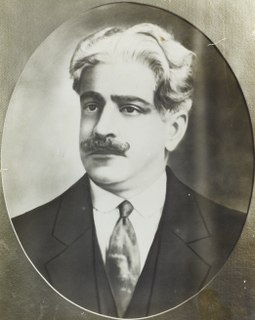
Oswaldo Gonçalves Cruz, better known as Oswaldo Cruz, was a Brazilian physician, pioneer bacteriologist, epidemiologist and public health officer and the founder of the Oswaldo Cruz Institute.
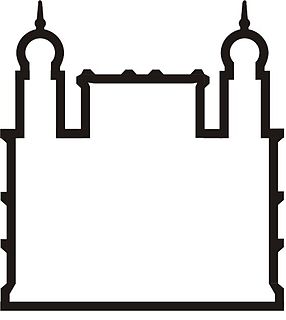
The Oswaldo Cruz Foundation is a scientific institution for research and development in biological sciences located in Rio de Janeiro, Brazil, it is considered one of the world's main public health research institutions. It was founded by Dr. Oswaldo Cruz, a noted physician and epidemiologist.
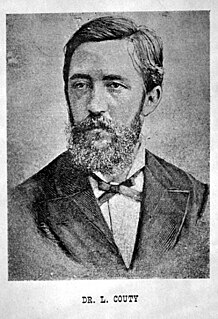
Louis Couty was a French physician and physiologist. He worked at the Laboratory of Experimental Physiology at the National Museum of Rio de Janeiro, the first of its kind in Brazil. He was a collaborator of João Baptista de Lacerda (1846-1915), a Brazilian physiologist who was the lab's founder.

Henrique da Rocha Lima was a Brazilian physician, pathologist and infectologist born in Rio de Janeiro. With his friend, Stanislaus von Prowazek, he described what would later be known as Rickettsia prowazekii, the pathogen of epidemic typhus. Rocha Lima named the organism after Prowazek and American bacteriologist Howard Taylor Ricketts (1871-1910).

Bento Ribeiro is a middle-class neighborhood in the North Zone of Rio de Janeiro, Brazil. It is a suburban area in the vicinity of Marechal Hermes and Oswaldo Cruz and Vila Valqueire, Rio de Janeiro. Bento Ribeiro owes its name to Bento Manuel Ribeiro Carneiro Monteiro, mayor of Rio de Janeiro between 1910 and 1914. It is the birthplace of the professional football player Ronaldo and the place where the famous television host Xuxa lived in her childhood.
Edvaldo Jizídio Neto, commonly known as Vavá, was a Brazilian footballer who is widely considered one of the best strikers of his generation. His nickname was "Peito de Aço". He played as a main striker for Sport Club do Recife, C.R. Vasco da Gama, S.E. Palmeiras and the Brazilian national team.
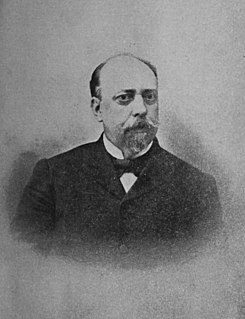
João Batista de Lacerda, was a physician and one of the pioneering Brazilian biomedical scientists in the fields of experimental physiology and pharmacology.
Miguel Osório de Almeida was a noted Brazilian physician and scientist, brother of another scientist, Álvaro Osório de Almeida, both considered the fathers of modern physiology in Brazil.

Carlos Chagas Filho was a Brazilian physician, biologist and scientist active in the field of neuroscience. He was internationally renowned for his investigations on the neural mechanisms underlying the phenomenon of electrogenesis by the electroplaques of electric fishes. He was also an important scientific leader, being one of the founders of the Biophysics Institute of the Federal University of Rio de Janeiro and was also a president for 16 years of the Vatican's Pontifical Academy of Sciences, and president of the Brazilian Academy of Sciences (1965–1967).

Evandro Serafim Lobo Chagas, was a Brazilian physician and biomedical scientist specializing in tropical medicine. He was born in Rio de Janeiro, the eldest son of Carlos Chagas (1879-1934), noted physician and scientist who discovered Chagas disease, and brother of Carlos Chagas Filho (1910-2000), also a noted physician and scientist who was president of the Pontifical Academy of Sciences.

Aymoré Moreira was a Brazilian football player and coach, who played as a goalkeeper. He was a brother of Zezé Moreira and Ayrton Moreira, both of whom were also successful coaches in Brazilian football.
Walter Oswaldo Cruz was a Brazilian chess master.
Heráclides César de Souza Araújo was a Brazilian scientist known for his research into the control and treatment of leprosy. He served on the World Health Organization (WHO) Expert Panel on Leprosy and on the council of the International Leprosy Association, and received national honours in recognition of his work.
Oswaldo Cruz Filho was a Brazilian chess master.

Madureira is a neighborhood in the North Zone of the city of Rio de Janeiro, Brazil. Its population is basically middle class and lower middle-class, including some shanty towns, (favelas).
Oswaldo is a Spanish masculine given name.

Manguinhos Airport was an airport that existed in the neighborhood of Manguinhos, near Oswaldo Cruz Foundation in Rio de Janeiro from 1936 to 1972.

The canoeing races at the 2016 Summer Olympics in Rio de Janeiro were contested in two main disciplines: the slalom, from 7 to 11 August, and the sprint, from 15 to 20 August. The slalom canoe competition was held at the Olympic Whitewater Stadium; whereas the sprint events was staged at Lagoa Rodrigo de Freitas in Copacabana. The location for canoeing events was a source of concern for athletes since the Brazilian federal government's Oswaldo Cruz Foundation lab has found the genes of drug-resistant super bacteria in Rodrigo de Freitas lagoon.
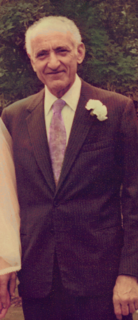
Hélio Gelli Pereira was a Brazilian-British virologist specialising in adenoviruses. Pereira was a co-recipient of the 1988 UNESCO Carlos J. Finlay Prize for Microbiology and was known for his work on the book, Viruses of Vertebrates. He contributed to several areas of virology in research and international public service.












